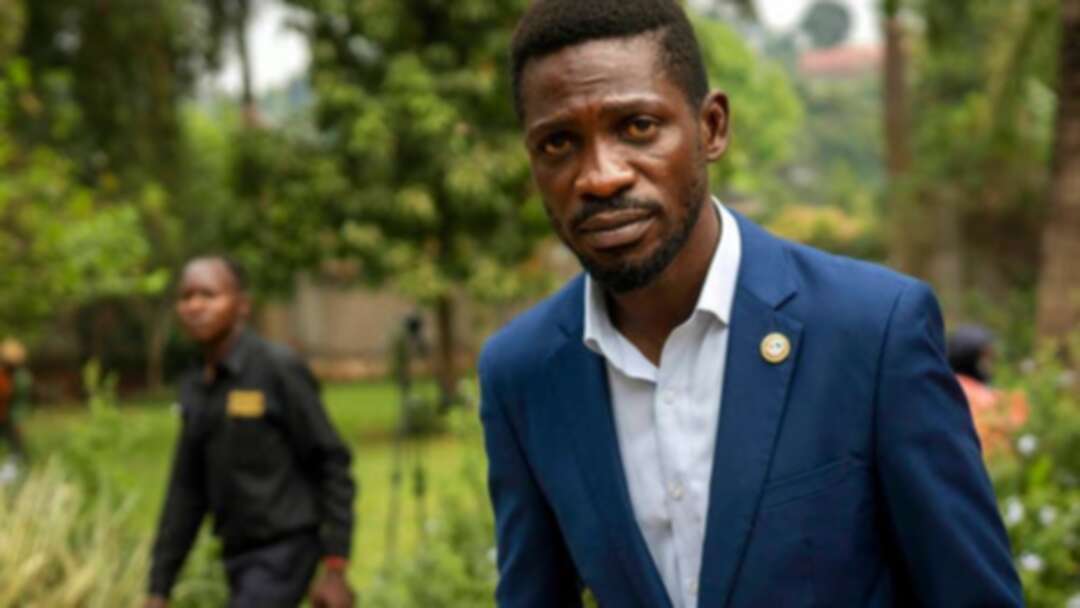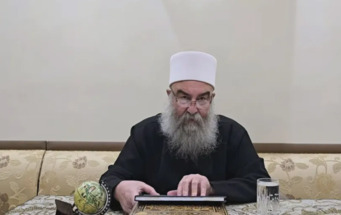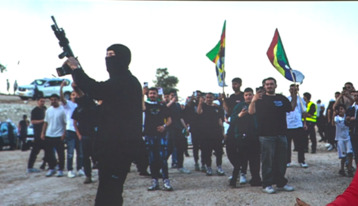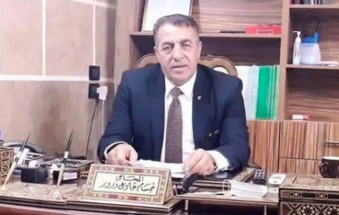-
Judge orders the release of Uganda’s Bobi Wine from house arrest

A judge ruled on Monday that Ugandan security forces cannot detain presidential challenger Bobi Wine inside his home, rebuking authorities for holding the candidate under house arrest following a disputed election.
Wine, whose real name is Kyagulanyi Ssentamu, has been unable to leave his home since January 14, when Ugandans voted in an election in which the singer-turned-politician was the main challenger to President Yoweri Museveni. Ugandan authorities have said Wine can only leave his home on the outskirts of the capital, Kampala, under military escort because they fear his presence in public could incite rioting.
But the judge said in his ruling that Wine’s home is not a proper detention facility and noted that authorities should criminally charge him if he threatens public order.
Wine’s associates welcomed the courtroom victory, but it remains to be seen if authorities will respect the judge’s order in this East African country where similar orders have been ignored in many cases.
Museveni won the election with 58 percent of the vote while Wine had 34 percent, according to official results. Wine insists he won and has said he can prove that the military was stuffing ballot boxes, casting ballots for people and chasing voters away from polling stations.
Wine has accused Museveni of staging a “coup” in last week’s election and is urging his supporters to protest his loss through nonviolent means. But he suggested in a statement Friday he might not go to court to challenge the official results because of concerns a possible loss there would validate Museveni’s win. He said he would announce a decision “in a few days.”
Museveni has dismissed allegations of vote-rigging, calling the election “the most cheating-free” since independence from Britain in 1962.
Uganda’s election was marred by violence ahead of polling day as well as an internet shutdown that remained in force until four days after the election. Social media sites remain restricted.
Uganda has never witnessed a peaceful transfer of power — one reason why even some within the ruling party publicly urge Museveni to preside over an orderly transition.
source: The Associated Press
Image source: AP
Levant
You May Also Like
Popular Posts
Caricature
BENEFIT Sponsors BuildHer...
- April 23, 2025
BENEFIT, the Kingdom’s innovator and leading company in Fintech and electronic financial transactions service, has sponsored the BuildHer CityHack 2025 Hackathon, a two-day event spearheaded by the College of Engineering and Technology at the Royal University for Women (RUW).
Aimed at secondary school students, the event brought together a distinguished group of academic professionals and technology experts to mentor and inspire young participants.
More than 100 high school students from across the Kingdom of Bahrain took part in the hackathon, which featured an intensive programme of training workshops and hands-on sessions. These activities were tailored to enhance participants’ critical thinking, collaborative problem-solving, and team-building capabilities, while also encouraging the development of practical and sustainable solutions to contemporary challenges using modern technological tools.
BENEFIT’s Chief Executive Mr. Abdulwahed AlJanahi, commented: “Our support for this educational hackathon reflects our long-term strategic vision to nurture the talents of emerging national youth and empower the next generation of accomplished female leaders in technology. By fostering creativity and innovation, we aim to contribute meaningfully to Bahrain’s comprehensive development goals and align with the aspirations outlined in the Kingdom’s Vision 2030—an ambition in which BENEFIT plays a central role.”
Professor Riyadh Yousif Hamzah, President of the Royal University for Women, commented: “This initiative reflects our commitment to advancing women in STEM fields. We're cultivating a generation of creative, solution-driven female leaders who will drive national development. Our partnership with BENEFIT exemplifies the powerful synergy between academia and private sector in supporting educational innovation.”
Hanan Abdulla Hasan, Senior Manager, PR & Communication at BENEFIT, said: “We are honoured to collaborate with RUW in supporting this remarkable technology-focused event. It highlights our commitment to social responsibility, and our ongoing efforts to enhance the digital and innovation capabilities of young Bahraini women and foster their ability to harness technological tools in the service of a smarter, more sustainable future.”
For his part, Dr. Humam ElAgha, Acting Dean of the College of Engineering and Technology at the University, said: “BuildHer CityHack 2025 embodies our hands-on approach to education. By tackling real-world problems through creative thinking and sustainable solutions, we're preparing women to thrive in the knowledge economy – a cornerstone of the University's vision.”
opinion
Report
ads
Newsletter
Subscribe to our mailing list to get the new updates!






















